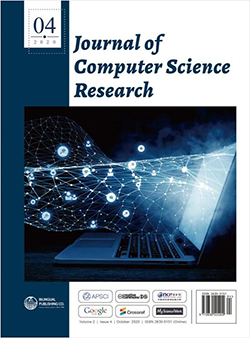
Human-Centered A.I. and Security Primitives
DOI:
https://doi.org/10.30564/jcsr.v2i4.2534Abstract
The paper reviews how human-centered artificial intelligence and security primitive have influenced life in the modern world and how it’s useful in the future. Human-centered A.I. has enhanced our capabilities by the way of intelligence, human informed technology. It has created a technology that has made machines and computer intelligently carry their function. The security primitive has enhanced the safety of the data and increased accessibility of data from anywhere regardless of the password is known. This has improved personalized customer activities and filled the gap between the human-machine. This has been successful due to the usage of heuristics which solve belowems by experimental, support vector machine which evaluates and group the data, natural language processing systems which change speech to language. The results of this will lead to image recognition, games, speech recognition, translation, and answering questions. In conclusion, human-centered A.I. and security primitives is an advanced mode of technology that uses statistical mathematical models that provides tools to perform certain work. The results keep on advancing and spreading with years and it will be common in our lives.
Keywords:
Artificial Intelligence; Deep learning; Digital signatures; Machine learning; Private information retrievalReferences
[1] M. O. Riedl. Human-centered artificial intelligence and machine learning. Hum. Behav. Emerg. Technol., 2019, 1(1): 33-36.
[2] E. Coronado, G. Venture, N. Yamanobe. Applying Kansei/Affective Engineering Methodologies in the Design of Social and Service Robots: A Systematic Review. Int. J. Soc. Robot., 2020.
[3] G. Leiras. European Journal of Public Health. 2020, 3(5): 2020.
[4] A. Zorins, P. Grabusts. Safety of artificial superintelligence. Vide. Tehnol. Resur. - Environ. Technol. Resour., 2019, 2: 180-183.
[5] P. Hunter. The advent of AI and deep learning in diagnostics and imaging. EMBO Rep., 2019, 20(7): 1-4.
[6] B. W. Israelsen, N. R. Ahmed. “Dave...I can assure you ...that it’s going to be all right ...” A Definition, Case for, and Survey of Algorithmic Assurances in Human-Autonomy Trust Relationships. ACM Comput. Surv., 2019, 51(6): 1-37.
[7] K. Mizukami et al. Genetic characterization of pancreatic cancer patients and prediction of carrier status of germline pathogenic variants in cancer-predisposing genes. EBioMedicine, 2020, 60: 103033.
[8] F. Locatello et al. Challenging common assumptions in the unsupervised learning of disentangled representations. RML@ICLR 2019 Work. - Reprod. Mach. Learn., 2019.
[9] L. Han et al. Grid-wise control for multi-agent reinforcement learning in video game AI. 36th Int. Conf. Mach. Learn. ICML 2019, 2019: 4558-4571.
[10] I. Petukhov, L. Steshina, A. Glazyrin, D. Velev. Design Model of a Training Simulator in Virtual Reality. FASSI 2019 Fifth Int. Conf. Fundam. Adv. Softw. Syst. Integr., 2019: 1-7.
[11] H. Shevlin, K. Vold, M. Crosby, M. Halina. The limits of machine intelligence. EMBO Rep., 2019, 20(10): 1-5.
[12] S. M. Abdullah. Artificial Intelligence (Ai) and Its Associated Ethical Issues. Islam Civilisational Renew., 2019, 10(1): 124-126.
[13] R. Thawonmas, J. Togelius, G. N. Yannakakis. Artificial General Intelligence in Games : Where Play Meets Design and User Experience. NII Shonan Meet., 2019, 130.
[14] M. L. How. Future-ready strategic oversight of multiple artificial superintelligence-enabled adaptive learning systems via human-centric explainable ai-empowered predictive optimizations of educational outcomes. Big Data Cogn. Comput., 2019, 3(3): 1-43.
[15] R. Thomson, C. Lebiere, S. Bennati, P. Shakarian, E. Nunes. Malware identification using cognitively-inspired inference. 24th Conf. Behav. Represent. Model. Simulation, BRiMS 2015, co-located with Int. Soc. Comput. Behav. Model. Predict. Conf. SBP 2015, 2015: 18-25.




 Alex Mathew
Alex Mathew





